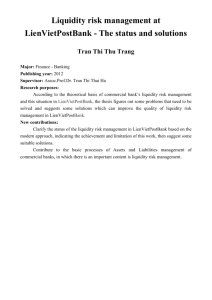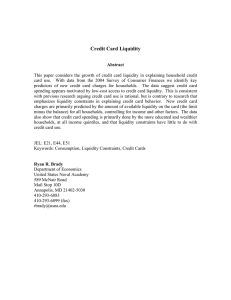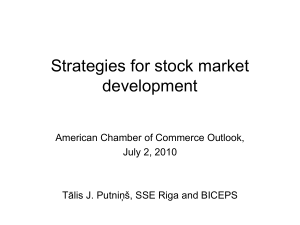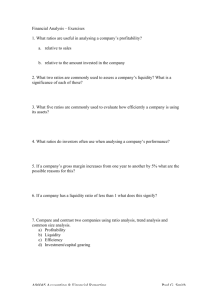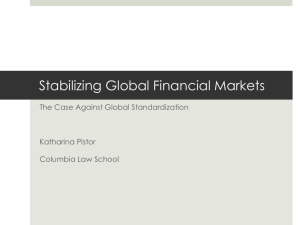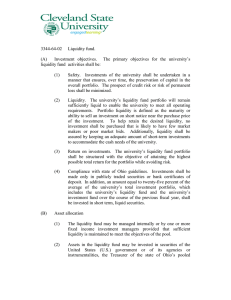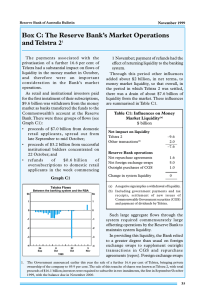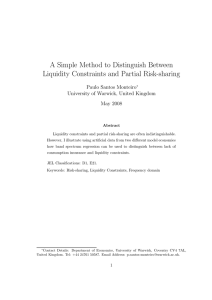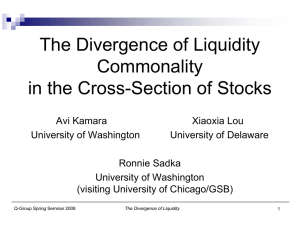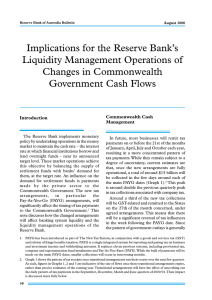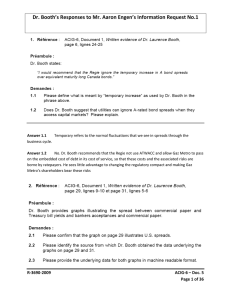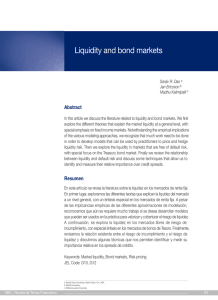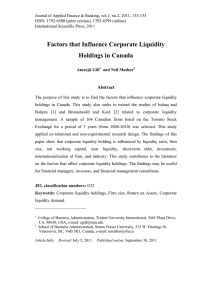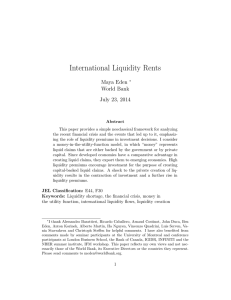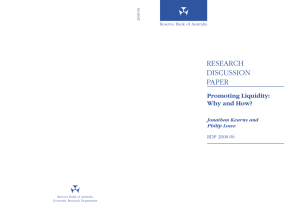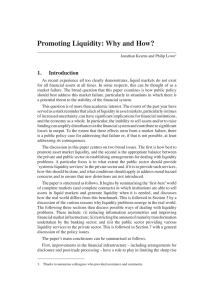Savings Gluts and Financial Fragility October 2015
advertisement
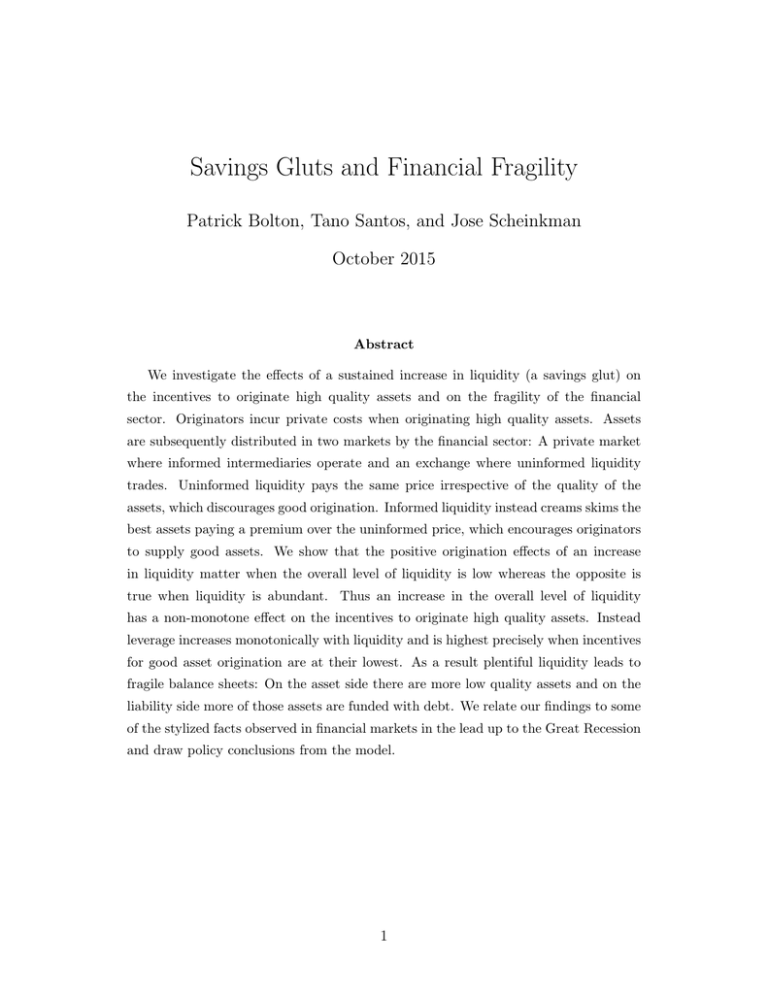
Savings Gluts and Financial Fragility Patrick Bolton, Tano Santos, and Jose Scheinkman October 2015 Abstract We investigate the effects of a sustained increase in liquidity (a savings glut) on the incentives to originate high quality assets and on the fragility of the financial sector. Originators incur private costs when originating high quality assets. Assets are subsequently distributed in two markets by the financial sector: A private market where informed intermediaries operate and an exchange where uninformed liquidity trades. Uninformed liquidity pays the same price irrespective of the quality of the assets, which discourages good origination. Informed liquidity instead creams skims the best assets paying a premium over the uninformed price, which encourages originators to supply good assets. We show that the positive origination effects of an increase in liquidity matter when the overall level of liquidity is low whereas the opposite is true when liquidity is abundant. Thus an increase in the overall level of liquidity has a non-monotone effect on the incentives to originate high quality assets. Instead leverage increases monotonically with liquidity and is highest precisely when incentives for good asset origination are at their lowest. As a result plentiful liquidity leads to fragile balance sheets: On the asset side there are more low quality assets and on the liability side more of those assets are funded with debt. We relate our findings to some of the stylized facts observed in financial markets in the lead up to the Great Recession and draw policy conclusions from the model. 1
